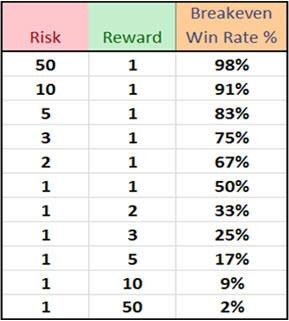
Tips!


All times GMT
1330 US Oct CPI expected 0.1% m/m, from +0.6%, ex food and energy exp +0.1%m/m unchanged
US Nov Empire state survey expected -8.0 from -6.2
US initial claims (wk Nov 10) exp 375k from 355k
Canadian Sept Mfg sales exp=0.3%m/m down from +1.5%
1400 US Fed’s Lacker speaks on economic outlook
1500 US Nov Philly Fed Survey exp 2.0 from 5.7
1540 US Fed Evans speaking ati 15th annual banking conference
1820 US Chairman Bernanke speaks on Housing and mortgage markets
1945 US Fed’s Fisher speaks at State of West symposium
2130 US Fed’s Plosser speaks at CATO Institute
2330 US Fed’s Dudley speaks at NY clearing house
Well, it’s that time of year – the annual Buffett letter is out. Love him or hate him, these letters are always must reads as they’re filled with awkward sex jokes and investment knowledge that you can pass on to your kids. The investment knowledge, that is, not the sex jokes. Here are some key takeaways from this year’s letter:
Stocks are really expensive. He writes:
“In our search for new stand-alone businesses, the key qualities we seek are durable competitive strengths; able and high-grade management; good returns on the net tangible assets required to operate the business; opportunities for internal growth at attractive returns; and, finally, a sensible purchase price.
That last requirement proved a barrier to virtually all deals we reviewed in 2017, as prices for decent, but far from spectacular, businesses hit an all-time high. Indeed, price seemed almost irrelevant to an army of optimistic purchasers.
Why the purchasing frenzy? In part, it’s because the CEO job self-selects for “can-do” types. If Wall Street analysts or board members urge that brand of CEO to consider possible acquisitions, it’s a bit like telling your ripening teenager to be sure to have a normal sex life.”
It took him two pages before he made an awkward sex joke. He’s getting impatient in his old age. But one thing he’s definitely patient about is buying stocks at a reasonable price. He apparently doesn’t love the market at these valuations….
Don’t use leverage to buy stocks. Here’s a timely comment on using leverage given the recent fiascos with leveraged ETFs and volatility ETFs: (more…)
 Trading is not easy but it also isn’t as hard as we make it. Here are three things that will help it be less hard.
Trading is not easy but it also isn’t as hard as we make it. Here are three things that will help it be less hard.
Trading Plan
Have a plan already. You are just guessing and putting yourself through unnecessary stress if you don’t. You are taking a test without studying.
Fall in love with the L’s
You have to live with the idea of loss and learning. They are connected. They are always fighting each other. Losses makes you want to ignore the learning and not losing makes you think you don’t need it.
Perspective
When you lose your optimism shrinks, when you win it expands. Chances are you have only accepted winning. One trade does not make a trend, either direction. But it is easy to connect the losses. Step back and see it for what it really is.



95% Traders are Losers……………………….will Never Earn Money /Forget Minting Money.
Finance even has its own high priests in the form of the analysts and fund managers who promise their clients heavenly rewards if only they listen to their advice. They preach regular sermons in the form of brokers’ notes and quarterly reports, and they house themselves in vast cathedral-like buildings that dominate the skyline. Each day also has its canonical hours as traders pray for profitable opportunities at the European, American and Asian market openings. Finance has its annual calendar, too, marked with festivals known as results seasons in which the lucky participants receive their temporal (rather than spiritual) dividends.
And like any self-respecting religion, finance has its doctrinal schisms as well. Active fund managers are a bit like the medieval Catholic church, offering eternal salvation to those willing to pay the appropriate sum, which are known in modern parlance as performance fees rather than indulgences. The active-investment sect has its elaborate rituals and language, with a liturgy (“information ratios” and “alpha generation”) as baffling to the layman as the Latin mass was to the medieval peasant. Clients are supposed to listen to their presentations in a reverential hush, trusting that all the mumbo-jumbo will deliver superior results. The passive fund managers, or index-trackers, are akin to early Lutherans. Investors have no need for priestly intermediaries between them and the market, say the index-trackers. All they require is the full text of those companies that are included in the benchmark. (more…)
